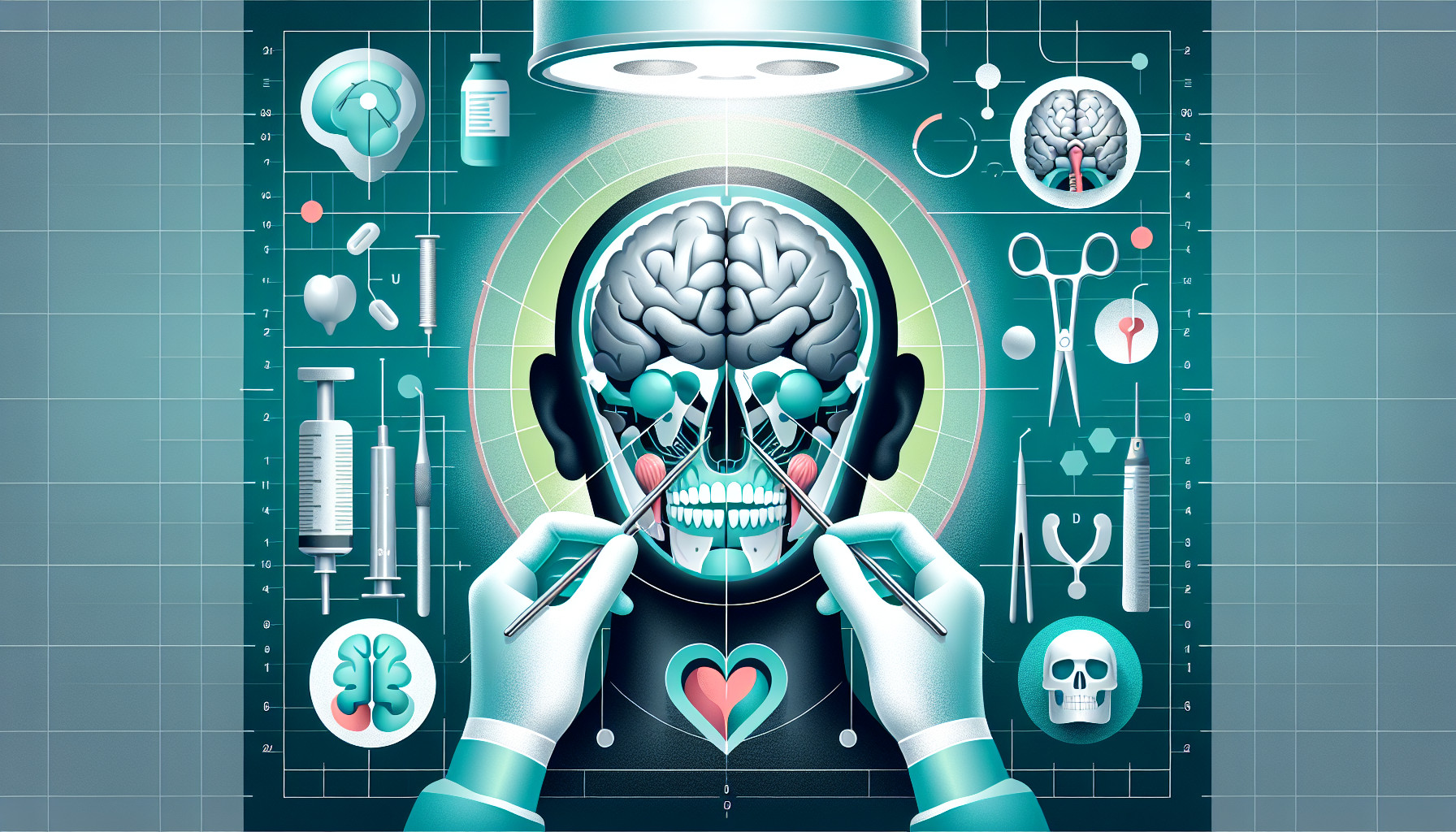Our Summary
This research studied the effects of adding a genioplasty (chin surgery) to double-jaw surgery (surgery on the upper and lower jaw). They wanted to see if this additional procedure would cause more complications or lengthen a patient’s hospital stay. They looked at past medical records of patients who had either double-jaw surgery or triple-jaw surgery (double-jaw surgery plus genioplasty). They found that adding genioplasty did make the surgery take longer, but it didn’t make patients stay in the hospital longer or have more complications. So, this suggests that adding a genioplasty to double-jaw surgery can improve a patient’s appearance without causing significant additional problems.
FAQs
- Does adding a genioplasty to double-jaw surgery cause more complications?
- Does adding a genioplasty to double-jaw surgery lengthen the patient’s hospital stay?
- What are the benefits of adding a genioplasty to double-jaw surgery?
Doctor’s Tip
A helpful tip a doctor might tell a patient about jaw surgery is to follow post-operative care instructions closely, including maintaining a soft food diet, practicing good oral hygiene, and attending follow-up appointments with your surgeon. It’s also important to avoid strenuous activities and follow any restrictions on physical activity to ensure proper healing and minimize complications. Additionally, be sure to communicate any concerns or changes in symptoms to your surgeon promptly.
Suitable For
Patients who may be recommended for jaw surgery include those with:
- Severe misalignment of the jaw (such as underbite, overbite, or crossbite)
- Facial asymmetry
- Difficulty chewing or speaking due to jaw misalignment
- Temporomandibular joint (TMJ) disorders
- Obstructive sleep apnea
- Facial trauma resulting in jaw misalignment
- Congenital conditions affecting jaw development
It is important for patients to consult with a maxillofacial surgeon to determine if jaw surgery is the best treatment option for their specific condition.
Timeline
Before jaw surgery:
- Patient consults with a maxillofacial surgeon to discuss treatment options and determine if jaw surgery is necessary.
- Patient undergoes pre-surgical evaluations such as X-rays, CT scans, and dental molds to plan the surgery.
- Patient may need to undergo orthodontic treatment to align the teeth before surgery.
- Patient receives instructions on pre-operative care, including dietary restrictions and medication management.
During jaw surgery:
- Surgery is performed under general anesthesia, typically lasting several hours.
- Surgeon makes incisions inside the mouth to access the jaw bones.
- Surgeon repositions the jaw bones to correct alignment issues.
- If genioplasty is included, surgeon may also reshape the chin bone for aesthetic purposes.
- Incisions are closed with dissolvable stitches.
- Patient is monitored in the recovery room before being transferred to a hospital room or discharged home.
After jaw surgery:
- Patient experiences swelling, bruising, and discomfort in the jaw area, which may last several weeks.
- Patient follows a liquid or soft food diet for a period of time to allow the jaw to heal.
- Patient may need to wear braces or a splint to stabilize the jaw during the initial healing phase.
- Patient attends follow-up appointments with the surgeon to monitor healing progress and address any concerns.
- Patient may undergo physical therapy to regain jaw function and strength.
- Over time, patient’s jaw function and appearance improve, leading to better overall quality of life.
What to Ask Your Doctor
- What are the specific reasons for recommending jaw surgery in my case?
- What are the potential risks and complications associated with jaw surgery, including the addition of genioplasty?
- How long will the surgery take, and what is the expected recovery time?
- Will I need to follow a specific diet or lifestyle changes before and after the surgery?
- What type of anesthesia will be used during the surgery, and what are the potential side effects?
- How will jaw surgery impact my ability to speak, eat, and breathe?
- Will I need any additional procedures or treatments before or after the surgery?
- How often will I need to follow up with you after the surgery, and what will be involved in post-operative care?
- What are the potential long-term effects of jaw surgery, including the addition of genioplasty?
- Are there any alternative treatment options available for my condition, and how do they compare to jaw surgery in terms of effectiveness and risks?
Reference
Authors: Mookerjee VG, Peck CJ, Reategui A, Nguyen H, Lopez J, Steinbacher D. Journal: Aesthetic Plast Surg. 2023 Jun;47(3):1104-1110. doi: 10.1007/s00266-022-03078-0. Epub 2022 Sep 12. PMID: 36097080
